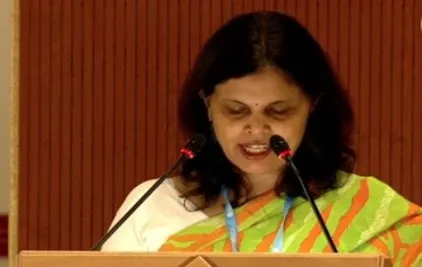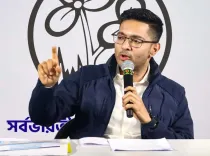How is India Reinforcing Its Commitment to Global Health at the 78th World Health Assembly?

Synopsis
Key Takeaways
- India's commitment to global health equity is evident at the WHA.
- Ayushman Bharat has significantly expanded healthcare access.
- Efforts are underway to eliminate diseases like tuberculosis and leprosy.
- Health coverage for citizens over 70 has been extended.
- India supports a legally binding framework for global health cooperation.
New Delhi, May 21 (NationPress) India has reiterated its dedication to global health equity during the 78th World Health Assembly (WHA) held in Geneva on Wednesday.
During the plenary session, the Indian delegation led by Union Health Secretary Punya Salila Srivastava highlighted the significant advancements achieved through flagship programs like Ayushman Bharat, which has greatly broadened access to comprehensive healthcare services.
“This initiative has not only improved infrastructure but has also provided financial protection for advanced treatments and expedited the adoption of digital health solutions, thereby moving towards Universal Health Coverage,” she remarked.
Srivastava underscored India's progress in areas such as maternal health, family planning, and the reduction of childhood mortality and stillbirths.
“India has recently been certified as Trachoma-free by WHO, and we are devoted to the elimination of diseases including tuberculosis (TB), leprosy, lymphatic filariasis, measles, rubella, and kala-azar (visceral leishmaniasis),” she confirmed.
She also noted a significant policy shift: India has extended health coverage under the Ayushman Bharat Pradhan Mantri Jan Arogya Yojana to all citizens aged 70 and above, regardless of their economic standing.
“In the past decade, we have increased the number of medical colleges from 387 to 780 to prepare the next generation of healthcare professionals,” the Health Secretary added.
Srivastava reaffirmed India’s strong backing for a legally binding framework that promotes global cooperation while honoring national sovereignty and capacities.
She also congratulated the WHO and other member states for their historic advancements towards the Pandemic Treaty.
This agreement, adopted by consensus among WHO member countries, seeks to address global healthcare disparities and inequities in response to future pandemics.
Srivastava emphasized the necessity of tackling future health challenges with a commitment to ensuring that no one is left behind.
“The Pandemic agreement must guarantee equitable access to medical countermeasures, facilitate timely and transparent data and pathogen sharing, and foster technology transfer and capacity building, especially for the Global South,” she concluded.










